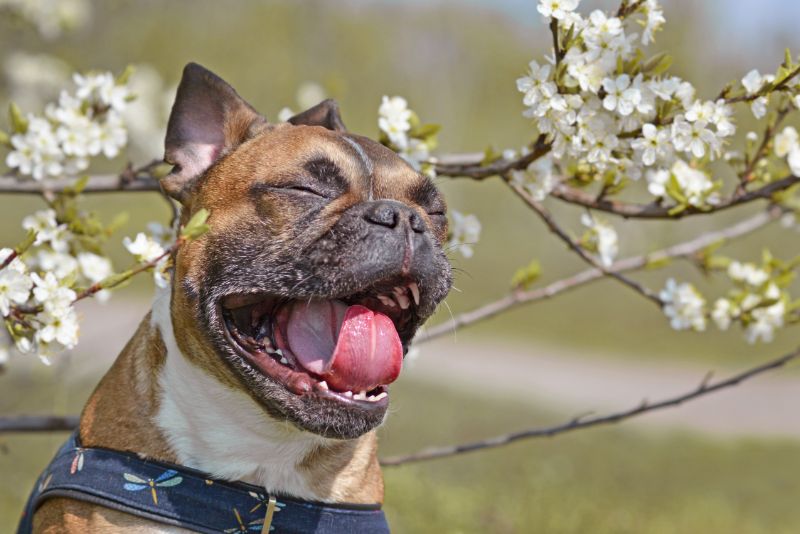
We all love spring, but what we can collectively agree on is that allergies that come with the season are a drag. Seasonal allergies in pets produce an array of symptoms, too, that can make it very unpleasant for an allergic pooch or cat. There are some symptoms, though, that a pet owner may overlook as an allergic reaction.
Your friends at True Care Veterinary Hospital are here to explain what to look for if your pet has pollen allergies, along with treatment options.
Oh, So Itchy!
Pollen allergies are on overdrive in the spring, when everything starts to bloom and propagate. They can be present, though, at any time of year. You may be surprised that most pets won’t have the usual sneezing and coughing that you experience with seasonal allergies. It can be a symptom, but the primary one to watch for manifests on the skin.
If your cat or dog is scratching more than usual, or has had skin related problems like dryness, hot spots, and ear infections, they may be allergic to pollen. This is due to the fact that they try and alleviate the itch by biting and scratching the skin or paws, or excessively licking the area.
Some of the following are more commonly reported signs when a pet has pollen allergies:
- Chronic scratching, licking, and biting at skin
- Itchy eyes, eye discharge
- Nasal discharge
- Skin disorders, including inflammation and wounds that don’t heal
- Ear infections
- Diarrhea
- Vomiting
- Sneezing
- Wheezing/coughing
- Snoring
- Swollen paws
What You Can Do to Help
If your pet is experiencing discomfort and hasn’t received a diagnosis, please contact us. We can uncover what specific allergens your pet is adversely reacting to, and then discuss possible treatment options and medications.
You can also help ease the itch at home by practicing the following to reduce allergic reactions in pets.
- Wipe your pet’s paws and legs with a warm, wet washcloth after they return from playing outdoors.
- Bathe your pet in a hypoallergenic shampoo with conditioner once a week or every other week.
- Maintain your veterinarian recommended supplements and medications, but never use a human grade allergy medication without getting instruction from your veterinarian.
- Launder your pet’s bed and blankets often.
- Use a variety of air filters that are specific to reducing allergens.
If Your Pet Has Pollen Allergies
If you suspect your pet has pollen allergies and would like to schedule an examination, please contact us. We can get to the bottom of which allergens are the most problematic for them and start them on the right treatment to ease the symptoms.
We look forward to seeing you and your sweet pet.

